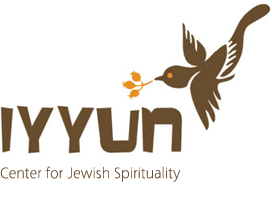Etzem – Anochi / ‘I’
Fire and smoke poured from the mountain and the earth shook. The entire Community of Israel stood together in awe at the foot of Sinai as the Divine Presence thrust them into profound revelation. The thunder of awakening surged through each heart and mind as a transcendent voice spoke out: Anochi Ha-Shem Elokecha.
The literal translation of this thunder is “I am The Name, your G-d.†Whereas the people of Israel received this realization in an explosive flash, we can receive this truth gradually by unpacking and contemplating the mystic teachings in these three words:
- Anochi is the Divine ‘I’ — a description of the Divine Self.
- Hashem – as in “The Name†refers to God’s attribute of Infinity, that is ‘beyond’ and transcendent.
- Elokecha, (also called Elokim,) is a plural term, referring to the Divinity that interfaces with the finite world of multiplicity: meaning, “your personal G-d.â€
The limited human ego / ‘I’ is called ani—composed of the Hebrew letters aleph, nun, and yud. When these letters are rearranged to aleph, yud, nun they spell ayin, meaning “nothing†or emptiness. We refer to the Infinite as ayin because from the perspective of finite, Infinity is intangible, it is no-thing, empty of “things†, conversely, from the perspective of the Infinite, the finite is nothing—the ego does not exist. The Infinite and finite are thus in perpetual tension and conflict.
The word anochi, as in the Divine “I†consists of the word ani, plus the letter kuf- symbolic of word kester meaning the Crown, the Ultimate. When the letters of anochi are rearranged, they spell k’ani, meaning “like an ani†or, “like an ‘I’.” Anochi, the Ultimate “I†is like the ego ‘I’. The Ultimate “I†is not elided with our personal self, yet “Anochi†invites us to extend the metaphor of “personal self” to its fullest expression as a part of the Ultimate Divine Self.
Anochi is a synonym for etzem or atzmus, meaning “Essenceâ€â€”the ultimate context and totality of Reality. Essence is no-thing and every-thing, and yet it is neither nothing nor everything. Descriptive names do not apply to atzmus because even the concept of “Infinity” is, by definition, a limitation.
Although Essence is beyond the finite and the Infinite, it also embraces and constitutes both of them. For this reason, Essence holds the key to resolving the existential tension between the finite and the Infinite.
The “I†of Anochi is not only the I of existence, manifestation or form, it is also the “I†of thing, and the “I†of no-thing, the “I†of finite and the “I†of infinite, the “I†of fullness and the “I†of emptiness.
As the ancients received the revelation of Anochi, they experienced their own limited human existence and the unlimited Divine Existence in the absence of conflict. In this revelation, there was no duality, only Unity. Nothing exists outside of Essence, thus Essence cannot be “experienced†― self- consciousness distances the mind and self from the experience itself.
Together, Every- thing and No-thing become a metaphor of Essence; Essence alone is not a metaphor. Every gate is a gate to Essence, and every practice is a practice of Essence. And yet, there are no gates, no practices to reach Essence. We cannot become that which we already are. The process may be simply a matter of revelation.







